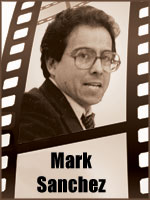 The Smackdown
The Smackdown
Win big, lose big. That’s the risk facing filmmakers seeking to do more than entertain. Joel and Ethan Coen take chances and the results are always interesting, sometimes great (Blood Simple, Raising Arizona, Miller’s Crossing). Their high-water mark might be Fargo (1996). It’s funny, creepy and earned Frances McDormand the Best Actress Oscar for her pregnant police chief Marge Gunderson. The Coen’s original screenplay also won the Academy Award, the Writer’s Guild Award and the film snagged a fistful of international honors. Now, a new blood stained mystery from the Coens strides into the arena, No Country for Old Men. Both films have clear similarities and this Smackdown! is a natural: Which movie shows greater artistic reach in these tales of greed, small-time cops and cheap lives?
The Challenger
Llewelyn Moss (Josh Brolin) goes hunting along the Rio Grande, but the hunter soon becomes the hunted. Moss stumbles onto the aftermath of a drug deal gone bad: Bodies, a load of heroin and $2 million in cash. He grabs the money, leaves the scene, but spoils everything by returning later with water for the only survivor of the shootout. By then, other gunmen show up and Moss barely escapes. Now the chase is on: The bad guys want the money back and local Sheriff Ed Tom Bell (Tommy Lee Jones) wants to find Llewelyn Moss before psychopathic hit man Anton Chigurh (Javier Bardem) does. The chase moves across west Texas, into Mexico and back. The body count grows with a distressing certainty that underscores the movie’s tag line: There are no clean getaways. The Coens directed a screenplay they adapted from Cormac McCarthy’s novel.
The Champion
Fargo follows the course of greed, small-time cops and disposable lives in the upper Midwest. Car salesman Jerry Lundegaard (William H. Macy) recruits a pair of sullen crooks, Carl and Gaear (Steve Buscemi and Peter Stormare) to kidnap his wife, Jean. Her dad has money and Lundegaard says the kidnappers want a million dollars. Nobody covers their tracks well: Jerry provides a new getaway car from his dealership; Carl shoots Jean’s dad; Gaear kills Jean Lundegaard and eventually, Carl. A dead highway patrolman puts Brainerd Police Chief Marge Gunderson on the case. She connects the dots between bouts of morning sickness and numerous meal breaks.
The Scorecard
Both movies tell their stories vividly and well. Fargo is straightforward in construction, briskly paced and morbidly funny. It relishes the distinctive inflections and speech patterns of Brainerd, Bemidji and Fargo. The Coens grew up around Minneapolis and their familiarity with the region shows. Top to bottom they cast the film well and encouraged great performances from McDormand, Macy and the kidnappers. These are 360-degree human beings on screen. Fargo settles any lingering question about the Coen’s vision and capacity as film artists.
You feel all the dust and empty space of west Texas that McCarthy wrote into No Country. You also sense a dread that overpowers. You know nothing good will come of Llewelyn’s decision to keep the drug money. Something deadly and inescapable is on the loose, Anton Chigurh. He is chilling and lethal as Hannibal Lector. People die when Chigurh shows up with his shotgun and piston-driven cattle killer. Josh Brolin (also outstanding in American Gangster) commands the screen as the man who can’t quite stay ahead of his pursuer. You cannot miss the years and the regret over a changed world etched into the face of Sheriff Ed Tom Bell (Jones). In No Country the main characters become more like metaphors for the greed, dread and lethal inevitability that carry the story. No clean getaways.
Two strong – and different – films by filmmakers at the top of their game. Fargo stands up to repeated viewings. It is rightly honored, while the other awaits a popular and critical verdict. Is there enough artistic reach and difference to separate the two? Yes.
And the winner is:
The Decision
Fargo’s strengths are unmistakable: It is keenly observed, well staged and the story is accessible. This film is a high achievement that will delight viewers forever. It’s a great movie. This film doesn’t lose, but it’s not our winner.
No Country for Old Men takes risks and pares its story down to essential images. Every character is human, but each stands for something larger. They appear for as long as they need and no longer. The result is restrained, clear-eyed and unforgettable. This film wins big.
The Coen brothers clarified their artistic vision by the time Fargo came out. Now, they extend it with our Smackdown! winner, “No Country for Old Men.”

Fargo Is The Best Coen Brothers Film Ever Made.
Selecting NO COUNTRY FOR OLD MEN as your Smackdown winner is high praise, indeed. Thanks for the insightful analysis. I’m going to see this film tonight.
Now c’mon — you didn’t have to list all those people who got killed, did you? Spoiler alert!
This had to be one of the hardest Smackdowns to write because these are both superior films. Still, I agree with your decision. I saw “No Country…” a week ago, and I can’t stop thinking about it. Although I also saw “Fargo” a decade ago and I’m still thinking about it, too. Hmmm…